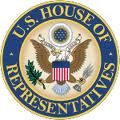 On April 26, the Subcommittee on Intellectual Property of the U.S. House Judiciary Committee held a hearing on “International Patent Issues: Promoting a Level Playing Field for American Industry Abroad.” Witnesses from industry and academia participated, and each listed what they consider to be the largest threats to firms relying on IP internationally. All of the witnesses presented an IP-maximalist view. For instance, they each warned that the way compulsory licenses have been used in middle income countries is problematic.
On April 26, the Subcommittee on Intellectual Property of the U.S. House Judiciary Committee held a hearing on “International Patent Issues: Promoting a Level Playing Field for American Industry Abroad.” Witnesses from industry and academia participated, and each listed what they consider to be the largest threats to firms relying on IP internationally. All of the witnesses presented an IP-maximalist view. For instance, they each warned that the way compulsory licenses have been used in middle income countries is problematic.
The Subcommittee page with links to each witness’ prepared statement is here.
Roy Waldren from Pfizer said the top problems in intellectual property enforcement facing the pharmaceutical industry are difficulties obtaining injunctions and damages (especially in China), compulsory licenses, problems with enforcement mechanisms before generic approvals, and insufficient protection of test data. He had three asks for government trade policy:
- ensure that the U.S. Government articulates and pursues strong intellectual property standards in Free Trade Agreements (FTAs) (including the ongoing negotiations of the Trans-Pacific Partnership) by building on the obligations in the recent Agreement with Korea and the principles found in U.S. law (i.e., 12 years of regulatory data protection for biologics);
- support ongoing efforts of the U.S. Government to secure full implementation of existing and future international obligations under multilateral, regional and bilateral trade agreements; and
- support the system of the IP Attachés administered by the U.S. Patent and Trademark Office and various forms of technical assistance and capacity building programs sponsored by the U.S. Government and other institutions.
Chris Israel from the American Continental Group listed problems faced by U.S. firms internationally, including
- “Exclusions, restrictions, or ‘flexibilities’ on patentability,” including India and Brazil’s laws that don’t allow patents on second uses. He claims that these violate Art. 27 of the TRIPS.
- Lack of data exclusivity
- Compulsory licenses
- Exemptions to patent infringement
- Under-resourced patent offices
- Pre-grant opposition
- Weak judicial enforcement
- Lack of patent term extensions to make up for regulatory delays.
Sean Murphy from Qualcomm warned that there are international trends toward weakened patent rights, which is often tied to protectionist technology policies. He listed the following specific “threats:”
- Government interference in technology licensing
- Local working requirements
- Restrictions on patentable subject matter
- Unique national standards and technical regulations
- “Conformity assessment” requirements
- Industrial policies that “aim to subsidize and promote local innovation, manufacturing and employment”
- “Questionable” antitrust enforcement
Christal Sheppard from the University of Nebraska College of law gave a brief history of U.S. efforts to increase international protection of IPRs. She discussed the TRIPS negotiations, Special 301, the PRO-IP Act (which established the office of the IP Enforcement Coordinator), the International Trade Commission’s quasi-judicial functions regarding imports from producers engaged in unfair trade acts, and the America Invents Act. She listed the following additional hurdles for international IP policy:
- Problems moving forward with additional reforms of the TRIPS Agreement
- Compulsory licensing
- Difficulties of U.S. firms in obtaining and enforcing patents abroad
- The possible narrowing of patentable subject matter in the United States, which would have international implications.




